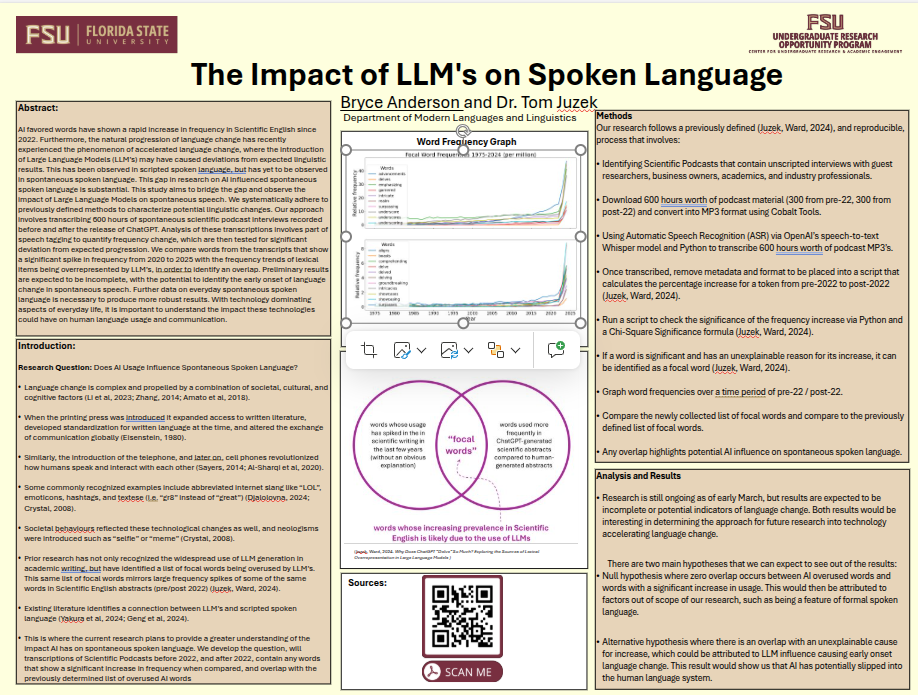Research Symposium
25th annual Undergraduate Research Symposium, April 1, 2025
Bryce Anderson Poster Session 3: 1:45 pm - 2:45 pm/ Poster #45

BIO
Bryce Anderson is a junior at Florida State University, studying Computer Science and International Affairs. As a member of the Undergraduate Research Opportunity Program (UROP), Bryce is engaged in research exploring the influence of artificial intelligence on language, focusing on its impact on spoken language.
The Impact of LLM's on Spoken Language
Authors: Bryce Anderson, Dr. Tom JuzekStudent Major: Computer Science
Mentor: Dr. Tom Juzek
Mentor's Department: Department of Modern Languages and Linguistics Mentor's College: College of Arts and Sciences Co-Presenters:
Abstract
AI favored words have shown a rapid increase in frequency in Scientific English since 2022. Furthermore, the natural progression of language change has recently experienced the phenomenon of accelerated language change, where the introduction of Large Language Models (LLM’s) may have caused deviations from expected linguistic results. This has been observed in scripted spoken language, but has yet to be observed in spontaneous spoken language. This gap in research on AI influenced spontaneous spoken language is substantial. This study aims to bridge the gap and observe the impact of Large Language Models on spontaneous speech. We systematically adhere to previously defined methods to characterize potential linguistic changes. Our approach involves transcribing 600 hours of spontaneous scientific podcast interviews recorded before and after the release of ChatGPT. Analysis of these transcriptions involves part of speech tagging to quantify frequency change, which are then tested for significant deviation from expected progression. We compare words from the transcripts that show a significant spike in frequency from 2020 to 2025 with the frequency trends of lexical items being overrepresented by LLM’s, in order to identify an overlap. Preliminary results are expected to be incomplete, with the potential to identify the early onset of language change in spontaneous speech. Further data on everyday spontaneous spoken language is necessary to produce more robust results. With technology dominating aspects of everyday life, it is important to understand the impact these technologies could have on human language usage and communication.
Keywords: AI, Linguistics, Scientific Computing, Language Change, Artificial Intelligence

